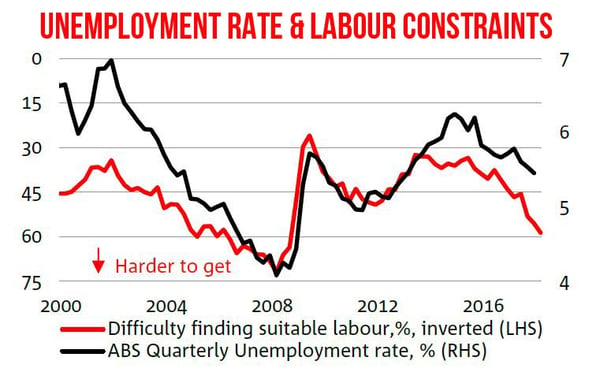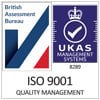By Chris Morrison, Regional Sales Director, ANZ, DaXtra Technologies
When we opened the DaXtra office in Sydney in 2017, we did so with full knowledge that competition in Australia’s recruitment industry was ratcheting up due to the country’s ongoing skills shortage.
Our big bet on Australia is based on a simple premise. In essence, we believe cutting edge candidate search technology can liberate Australia’s recruiters from the albatross of admin work and unleash previously unimaginable workflow efficiency gains.
With more time on their hands, recruiters can then spend a larger portion of their time building stronger bonds with Australia’s top candidates – which is essential because candidates are now keenly aware their skills are in short supply.
Why the skills shortage?
Before we go further with this line of thinking, it might help to have a bit of background.
As the decade draws to a close, it’s safe to say Australia’s economy – long revered as Asia Pacific’s most stable from a regulatory and legal point of view – is still undergoing a significant transformation.
This transformation is due in part to China’s macroeconomic slowdown. Australia’s largest trading partner is now buying reduced volumes of the country’s natural resources, forcing Australia to look for new growth engines – whether in agriculture, technology or tourism.
Rapid urbanisation is also contributing to Australia’s transformation. There is now a widening skills divide between major urban areas such as Sydney and Melbourne – where high-skilled university graduates are common – and the country’s more remote interior, where low skilled jobs are more prevalent, but there’s a shortage of workers to fill them.
According to government statistics, the gap between the unemployment rate and available labour is growing ever wider.
 Source: National Australia Bank (NAB)
Source: National Australia Bank (NAB)
As 2018 heads into 2019, Australia’s business leaders are increasingly concerned that the country’s skills gap is worsening. According to a recent study by PwC, 75% of Australia’s CEOs are concerned about the availability of key skills. That percentage stands in stark contrast to last year, when only 58% of Australia’s CEOs held the same concern (which was relatively optimistic when compared to 77% globally).
Responding to this trend, Australia’s policymakers have continued to modify immigration requirements as they seek to attract immigrants with the right skills. To qualify for skilled migration, applicants must nominate a profession on the skilled occupations list.
 Source: PwC Australia
Source: PwC Australia
It’s all about relationships
Given the situation, let’s just say it’s obviously getting rough out there. Skills shortages can be punishing on recruiters, especially those who haven’t yet developed strong networks in their chosen markets. That’s because the forces of supply and demand have granted top candidates much more power over the hiring process.
This means if Australia’s recruiters are serious about finding the best and the brightest, they need to get out of the office and take desirable candidates to lunch, dinner, drinks, coffee – anything that humanises, and further cements, the relationship between candidate and recruiter. Face time with top candidates is now more important than ever.
As recruitment industry expert Greg Savage advises: “The smart recruiter will make sure that they are very, very good at that part of recruitment that machines cannot do - because that is the sweet spot, and where the value lies.”
But here’s the catch: in order to spend that precious time building one-on-one relationships out of the office, recruiters need to know that they aren’t falling down on their desk jobs.
That is precisely where RecTech comes in. A best-in-class search and match solution, in conjunction with CV parsing, will obviate the need to manually sift through piles of CVs, and will do all of the required scanning and sorting in the blink of an eye. Australia’s recruiters can wine and dine the top candidates and clients with the comfort of knowing that they aren’t shirking work back at the office.
"Your job depends on you giving
away what a machine can do better"
— Greg Savage
Greg Savage again explains it brilliantly: “Recruiters be smart about AI. Give away the grunt work. Much of the sourcing, screening, matching, logistics and even early assessment, can be done quicker and better by machines. Don’t hold on to it 'to hold on to your job'. Your job depends on you giving away what a machine can do better. Your value is in your knowledge, your networks, your brand, your influencing, and your problem-solving skills.”
So there you have it: the real-life gains unleashed by time saving technology. While’s it’s true that AI tools are increasingly sophisticated, at DaXtra we believe the rise in tech will actually create more need for the human – or relationship building - side of recruitment. Nowhere is that truer than in Australia today.



